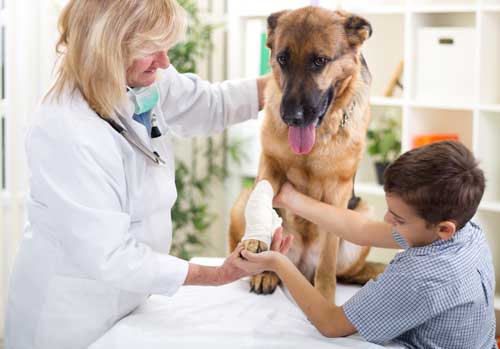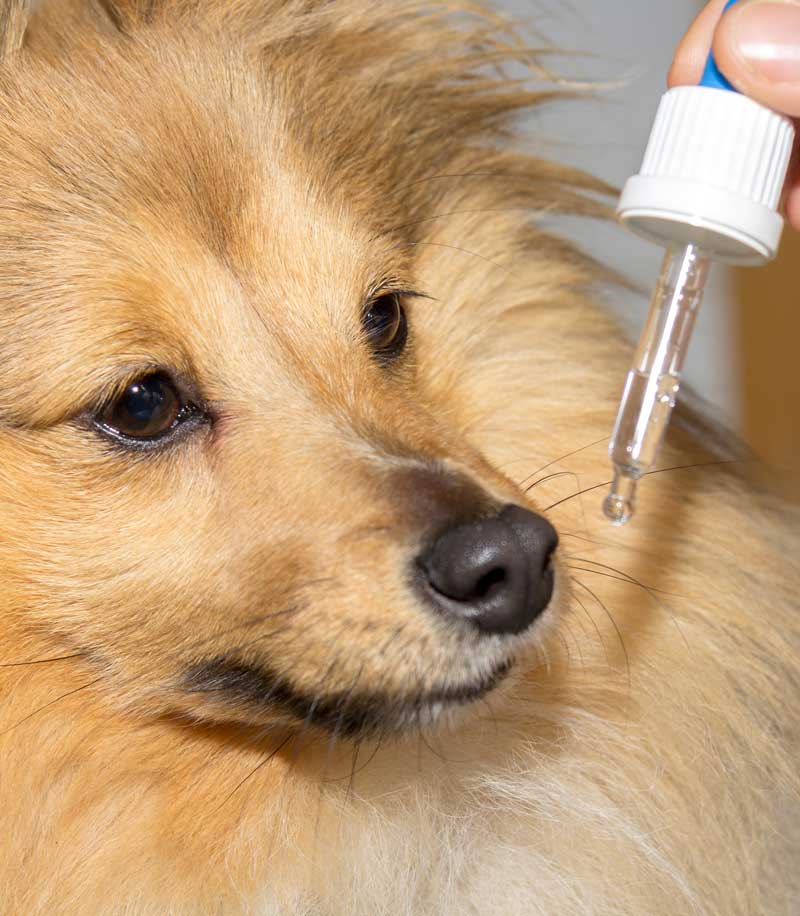Like the thermostat in your home, your dog’s Thyroid gland is the control meter for their metabolism.
Dogs with extreme highs or lows in their thyroid hormones can experience fatigue, lethargy, weight gain/loss, loss of hair and overall loss of appetite.
Does this sound like your dog? Your canine may be suffering from hypothyroidism, hyperthyroidism or autoimmune (lymphocytic) thyroiditis.
Canine Thyroid Issues
What is Hypothyroidism?
Hypothyroidism occurs when your dog’s thyroid hormone production is significantly decreased. This is common in older dogs (10+ years), but infections or tumors can cause thyroid gland fluctuations in dogs of any age.
Causes of Hyperthyroidism in Dogs
On the other side of the spectrum, Hyperthyroidism affects your dog when their thyroid hormone production increases drastically; leading to high-metabolism or an “over-metabolic rate”.
What is Autoimmune (lymphocytic) Thyroiditis?
Autoimmune thyroiditis (also known as “lymphocytic thyroiditis”) is a common cause for many dogs’ thyroid-related health issues.
Dog Breeds Prone to Hypothyroidism
Thyroid problems in dogs can affect any dog breed, but certain breeds are more prone to this debilitating condition.
English Setters
Havanese
Old English Sheepdog
American Pitbull Terriers
Tibetan Terriers
Boxers
English Pointers
Malteses
Beagles
Dalmatians
Cocker Spaniels
Golden Retrievers
Symptoms of Thyroid Problems in Dogs:
It is important to understand the differences between symptoms of Hypothyroidism and Hyperthyroidism. Hypothyroidism in dogs seems to be more common, however hyperthyroidism can be a very serious thyroid problem in dogs.
Some Hypothyroidism signs to watch out for:
-
Lethargy
-
Loss of hair, thinning of coat
-
Itching & skin infections
-
Weight gain / Obesity (without an increase in appetite)
-
Slower heart rate
-
Sensitivity to temperature changes
Hyperthyroidism symptoms to keep an eye on:
-
Hyperactivity
-
Weight loss
-
Increased appetite/thirst
-
Vomiting
-
Diarrhea
-
Increased heart rate
-
Heart murmurs
-
Rapid breathing, shortness of breath
Dog Hypothyroidism Natural Treatments
There are many natural treatments or dietary changes you can make in order to help with your dog’s thyroid problems.
Many dogs with hypothyroidism problems will have to take replacement hormones. Your veterinarian can provide you with this kind of hormone therapy, but there are other natural treatments you can give to your dog. Some people have had success feeding their canines raw meat diets.
There are a lot of herbal remedies many pet owners have turned to for on-demand and supplemental aid for their canine’s thyroid symptoms. Ashwaganda, kelp, turmeric, bladderwack, schisandra berries, mushrooms and hemp-derived CBD are parts of some popular formulas that aim to provide natural support for your dog’s hypothyroidism.
CBD can help your dog by producing anti-inflammatory, anti-anxiety, antipsychotic, antispasmodic and analgesic effects indirectly – that is, CBD interacts with your dog’s ECS (Endocannabinoid System) and directly binds to the Cannabinoid Receptors of the body. This does two things: makes the positive remedial properties more bioavailable to your dog; and lessens or negates the psychoactive effects, such as those associated with THC ingestion.
As you can see by the wide scope of ailments that CBD effects, it is clear to see how introducing CBD into your dog’s routine can help to maintain a healthy, balanced thyroid system. Ask your veterinarian thyroid medications for your dog’s thyroid problems if CBD does not help to alleviate some of their symptoms.
FAQ’s
What happens if hypothyroidism is left untreated in dogs?
Hypothyroidism can significantly reduce your dog’s quality of life, can lead to the deterioration of their health and even contribute to early death. It is important to pay attention to your dog’s health & wellbeing, and seek out veterinary care if you suspect your dog might be suffering from this condition.
Does hypothyroidism shorten a dog’s life?
Hypothyroidism can shorten your dog’s life if left undiagnosed/untreated.
Can dog food cause thyroid problems?
Certain dog foods or pet supplements can contain thyroid hormones, which can contribute to pets developing hyperthyroidism.
What do you feed a dog with thyroid problems?
Many canine thyroid medications can be supplemented with foods that contain balanced levels of amino acids, iodines, probiotics and antioxidants.
Can a dog with hypothyroidism lose weight?
Body weight is dependent on a number of factors, including diet, exercise, genetics, etc. However, your dog can also lose or gain weight if they are suffering from hypothyroidism. Many thyroid medications for dogs can help to balance your dog’s metabolic rate to normal levels.
Can hypothyroidism cause anxiety in dogs?
When your dog suffers from hypothyroidism it can manifest as impaired mental & physical functionality. Your dog can exhibit stress, nervousness, anxiety and a number of other symptoms due to the strain of hypothyroidism. As thyroid levels are balanced, associated anxiety symptoms will typically be reduced back to normal levels.








